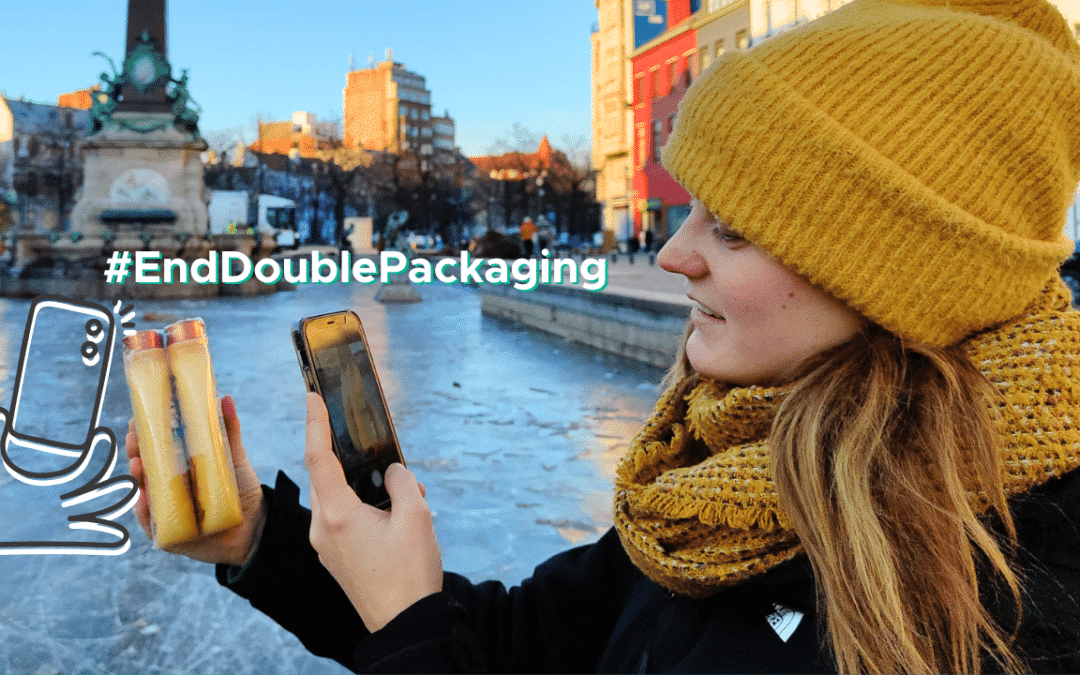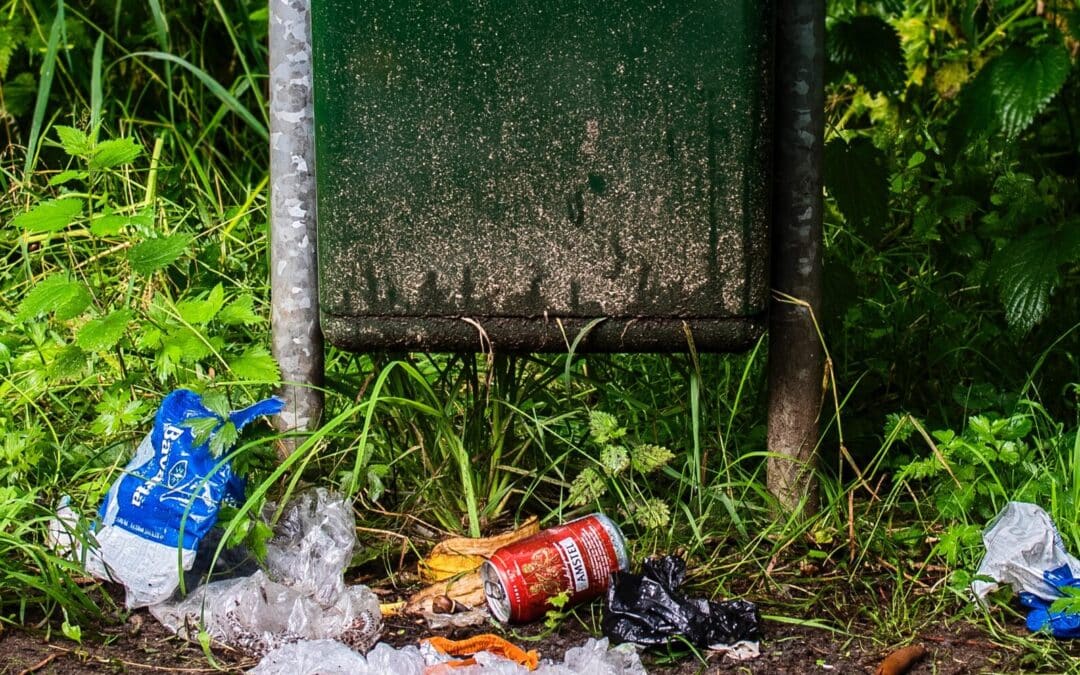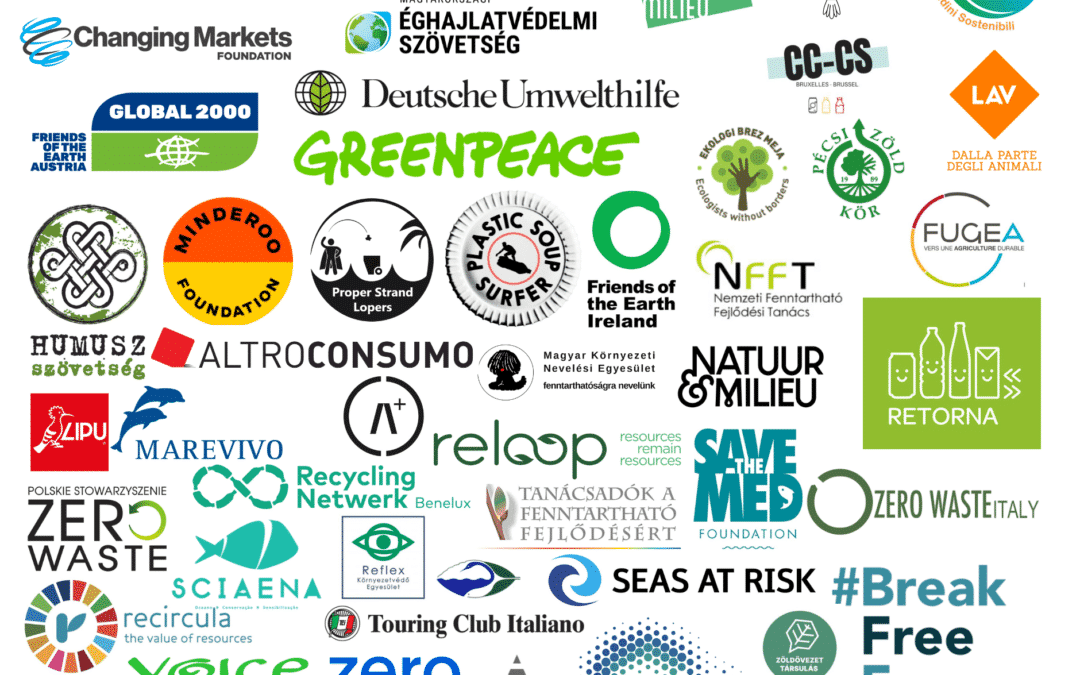This report analyses the causes and possible consequences of the recent price evolutions in the oil and plastics sector, the problems for the plastic recycling industry, and possible solutions.
1. Causes of the historically low oil prices
“US oil price below zero for first time in history”, the Financial Times wrote on 21 April 2020. The evaporation of demand caused by the coronavirus pandemic left the world awash with oil and not enough storage capacity — meaning producers are paying buyers to take it off their hands.
Source: https://www.bbc.com/news/business-52350082
The causes are multiple and both geo-political and economic: the US shale gas boom, the economic slowdown due to the Covid-19 pandemic, and the Saudi-Russian oil price war.
Some changes in prices are part of normal market developments. But what is happening now can be called a perfect storm. There is an extreme mismatch in supply and demand of fossil feedstocks. Global demand for fossil feedstocks dropped suddenly and dramatically. At the same time, the ongoing production of shale gas and the sudden price war between Saudi Arabia and Russia created an excess supply of discounted oil.
1.1. The US shale gas boom
The shale gas production in the United States rose fenomally in the last ten years, from 1.3 billion cubic feet in 2007 to 22 billion cubic feet in 2018. Because of this boom, the United States surpassed both Russia and Saudi-Arabia and became the biggest producer of liquid fossil fuels in the world. Oil prices crashed from above $114 per barrel in 2014 to about $27 in 2016. This was called the 2010s oil glut.
Source: EIA, US Energy Information Administration, https://www.eia.gov/dnav/ng/hist/res_epg0_r5302_nus_bcfa.htm
In May 2017, President Trump promised “complete” independence from foreign sources of oil, thereby putting additional emphasis on the strategy to develop shale gas exploration, something that was already well underway during the Obama administration.
1.2. The Covid-19 lockdowns
While production of fossil fuels was increasing, in the first months of 2020, the Covid-19 pandemic struck the world, leading to an unprecedented and sudden drop in economic activities. Travel restrictions and bans were introduced globally. Numerous airlines have cancelled flights due to lower demand. The cruise line industry was hard hit. Tourism came to a full stop due to travel bans. Countries went in lockdowns. The retail sector has been impacted globally with temporary closures. There was a near-total closure of schools, universities and colleges. Car factories shut down and production decreased dramatically.
Source: COVID-19 Shocks Mean No Respite For Oil And Gas In Future
The overall energy demand plummeted and the expectation is that the energy demand of 2020 will be about 6% lower than in 2019. As a result, the oil prices took a big fall. The Covid-19 demand shock represented a bigger contraction than that experienced during the Great Recession during the late 2000s and early 2010s.
1.3. The Russia–Saudi Arabia oil price war of 2020
Since 2016, Saudi Arabia and Russia agreed to cooperate in managing the price of oil. The informal alliance of the OPEC together with Russia was dubbed OPEC+ . By January 2020, they had cut oil production by 2.1 million barrels per day. With these measures they kept the oil price at a certain level.
But as the Covid-19 pandemic pushed demand for oil below forecasts, oil prices fell with 20% in the first two months of 2020. Tensions rose between the OPEC+ members. At a 6 March 2020 OPEC meeting in Vienna, they were unable to agree on reducing oil production in response to the global Covid-19 pandemic. The break-up in dialogue between OPEC and Russia triggered the oil price war on 8 March 2020. Later on the same day, oil prices had decreased by 30%, representing the largest one-time drop since the 1991 Gulf War. Oil traded at about $30 a barrel.
This economic conflict reinforced the sheer drop of oil price, with the price of US oil becoming negative on 20 April. Oil production can not be stopped completely, but even the lowest possible production level generates much greater supply than demand. As a result, the oil industry had nowhere to store the abundant oil. Instead of being an asset, it became a liability and the oil industry was ready to pay for it being taken away.
2. Effects on the plastics market
Oil and natural gas are the most important feedstocks of plastics. Therefore there is a direct link between the price of oil and the price of so-called virgin plastic.
Following the price drops in fossil feedstocks, the price of virgin plastic is hitting new lows as well in 2020. This makes it hard for recycled plastics to compete with the cheap virgin plastics.
2.1. The shale gas boom spurs huge investments in virgin plastics
Ethane and propane are two types of hydrocarbons that are important components of shale gas. Methane, the main component of shale gas, is burned for the production of energy, but ethane and propane can be used to make ethylene and propylene, the most important building blocks for making plastics.
Because of the increase in the production of shale gas in the US, the production of ethane climbed from 2014, and soared since 2018.
Source: In the War Against Plastic, America Is a Big Threat
Because there was lots of cheap ethane and propane available from the shale gas industry, the petrochemical industry invested enormous amounts in the construction of new facilities to produce new, virgin plastic that would drive prices of plastics further down.
We revealed in The Guardian of 21 January 2019 that 22 of the 28 chemical producers who founded the cynically named “Alliance to end plastic waste (AEPW)”, were actually investing billions of dollars in factories to produce even more virgin plastics. The president of the AEPW, Jacob Duer, had to admit this. He “accepts the observation as valid”, Ethical Corporation reported.
A big share of these virgin plastics are for consumer goods, such as plastic bottles and other single use plastic products. A rise in plastic production contributes to plastic pollution.
Among the investors in new plastics production facilities are major companies like BASF, ExxonMobil, Dow and Shell. For example, Royal Dutch Shell, the Dutch-British oil and gas company headquartered in the Netherlands, opened a giant new facility south of Pittsburgh last year, which will produce more than a million tons of plastic a year. “When completed, the facility will be fed by pipelines stretching hundreds of miles across Appalachia. It will have its own rail system with 3,300 freight cars. And it will produce more than a million tons each year of something that many people argue the world needs less of: plastic”, the New York Times wrote.
In the Port of Antwerp, INEOS is planning a 3 billion euro investment. Big ships are supposed to transport the ethane and propane to the Port of Antwerp. It has been hailed as the biggest chemical investment in Europe in 20 years.
Following the economic law of supply and demand, this huge boost of virgin plastic production leads to extra supply on the market, and further pushes down the price of virgin plastics.
2.2. Plastic demand and prices drop
So we see that the interaction of cheap ethane and propane out of shale gas production, and investments in new plastic production factories, all lead to a lock-in situation with one major consequence: always more, and cheaper, virgin plastics flowing into the international markets.
This long-term evolution to cheaper virgin plastics is the undercurrent. The lower demand due to the coronacrisis, and the price war add up to that, all together lead to historically low prices of virgin plastic.
2.2.1. Fall in consumption of of polyethylene (PE) and polypropylene (PP)
LyondellBasell Industries predicted a 15 per cent fall in consumption of two of the most common types of plastic, polyethylene and polypropylene, as people buy fewer automobiles and household appliances because of the pandemic. “A drop of this magnitude would signal a rare retreat by a substance that has proliferated with rising living standards around the world, but which is linked to environmental blight from discarded throwaway products”, the Financial Times writes.
For recycled plastics that are used in for example the automotive industry, the drop in demand has been significant, while there is no legislative framework that ensures producers will not switch to virgin plastics.
2.2.2. Inversion of the price difference between recycled and virgin PET
Source: In the War Against Plastic, America Is a Big Threat
Recycled PET has always been cheaper than virgin PET. The increase in shale gas extraction has reversed the price difference, S&P Global Platts reported in September 2019.
And while shale gas already drove the price of virgin PET down, the effect only became stronger the last couple of months and leaves recycled PET of food grade quality now often costing hundreds of euro per tonne more than virgin PET.
It should be noted that PET might be one of the commodities for which recyclers might still be able to find demand. PET is mostly used for packaging, among which plastic bottles, and the demand for packaging hasn’t dropped due to the pandemic. Besides, in Europe, the Directive 2019/904 obliges producers of plastic bottles to use 25% recycled content by 2025 and 30% by 2030. Drinks producers such as Coca-Cola and Pepsi are committing to use more recycled material.
For other recycled plastics such as polypropylene, the situation is more problematic. For example, Dutch recyclers export recycled plastics to Germany to be used in production of bumpers and dashboards of cars, but demand has dropped dramatically.
3. Recycling industry warns for shutdown
Plastics Recyclers Europe (PRE), an organization representing European plastics recyclers, has warned that much of its industry is forced to close production due to market developments caused by the Covid-19 pandemic.
According to PRE, the main drivers behind this slump are the lack of demand (because production of cars, aircraft and electronics have dropped), and record low prices of virgin plastics, as well as decreased activity globally.
Ton Emans, PRE president, commented: “If the situation is to persist and no actions are taken to remedy the sector, plastics recycling will cease to be profitable, hampering the attainment of the EU recycling targets and putting in jeopardy the transition towards circular plastics. In such a case, recyclable plastic waste will have no alternative but to be sent to landfill or incineration.”
The NRK, which represents the interests of around 400 companies from the Dutch rubber and plastic industry, also warned that these companies tend to opt for cheaper virgin raw materials instead of circular recyclate due to the extremely low prices of virgin raw materials and because they have been hit hard in their turnover due to the Covid-19 pandemic.
4. Solutions to the plastic recycling crisis
While it is hard for European governments to make a direct impact on the low oil price, they are still able to take measures to soften its ramifications on the European recycling sector. Action is needed to prevent the collapse of the European recycling industry, which would lead to even more dominance of virgin plastics, and the gigantic plastic pollution that comes with it. The European Union clearly committed itself to solve the plastic pollution.
We identify 5 policy measures the European Commission and European governments can introduce to solve the crisis of the plastic recycling sector. These policy measures are simultaneously beneficial for the environment.
A tax on virgin plastics
A tax on virgin plastics should be high enough to make recycled plastics competitive and thus attractive for companies to use in new products. The European Commission already sees a plastic tax as an option for financing the European Green Deal, but it is important that the tax on virgin plastics is sufficiently high so that it has a real impact on the plastic markets.
Require a minimum of recycled content
In the Netherlands, new plastic products contain less than 10 percent recycled plastic and it is unlikely other countries perform much better. By requiring minimum amounts of recycled plastic in new products, companies will have to use more plastic from processed waste. This will increase the demand for recyclate, and reduce demand for virgin plastic made from oil.
Moreover, because producers will need the waste of their own products, they will adapt the design process so that the waste can be properly collected and used later. Dutch State Secretary for Infrastructure and Water Management Stientje van Veldhoven declared that she strongly supports a minimum recycled content requirement at the European level.
Limit the number of types of plastics allowed on the market
Different polymers with different additives for different applications lead to hundreds of combinations – which are often collected collectively. On top of that, products often consist of different types of polymers, again making high quality recycling very difficult.
Producers have far too much freedom of choice. Choices have to be made for certain types of plastics for specific applications, with a limited choice of additives and a strong preference for products made from one type of plastic.
Phase out disposable plastics where possible
Reverse the burden of proof: for example, let supermarkets prove that plastic packaging around fruit and vegetables is absolutely necessary to transport and sell them. Identify product systems that can and should make a full switch to reusable alternatives, such as coffee cups or plastic plant trays. Make it so that the use of disposable plastic will no longer be the standard; its use will have to be legitimized. The French law for the circular economy aims to phase out all disposable plastic by 2040.
Ban the export of plastic waste to countries outside Europe
Europe is still exporting plastic waste because it is cheaper to process or dump it elsewhere than to properly recycle it within the EU. Since the Chinese import ban, a lot of European waste ends up in landfills, for example, in Turkey. By deciding that Europe will have to process its waste itself, we stimulate the European recycling sector and avoid plastic leakage to countries that have less effective waste systems – and thus leakage of plastic waste into the environment.
In conclusion, the European Member States and the European Union have relatively little control over the oil price or the market price of virgin plastics. However, with this package of 5 policy measures, they can prevent the European recycling sector from collapsing. These measures lead to greater security for recycling companies and thus to job retention. A good legal framework is the best conceivable support package for the recycling industry.
These measures also serve the environment. If the cheap virgin plastic wrecks the plastic recycling, Europe will be unable to win the fight against plastic pollution from throwaway plastic. We are happy to make our knowledge available for an environmental move forward and call on companies that use plastics, the recycling sector and retail to endorse these measures.
Tom Zoete and Rob Buurman



